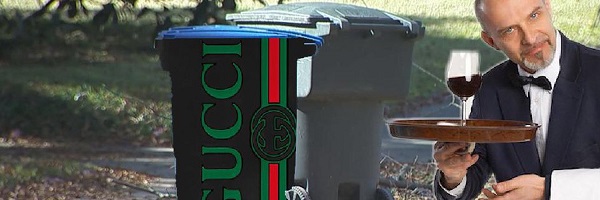Coons and Stivers Reintroduce Measure to Make the
Post# of 82692
 Congressman Stivers.
Congressman Stivers.  Senator Coons.
Senator Coons. Coons and Stivers Reintroduce Measure to Make the U.S. Patent System STRONGER
By Gene Quinn
July 10, 2019
“Without the ability for a patent owner to obtain an injunction, attorneys for infringers commit malpractice if they advise taking a license.”
Senator Chris Coons (D-DE) and Congressman Steve Stivers (R-OH) reintroduced the STRONGER Patents Act of 2019 today in an event on Capitol Hill. Coons first introduced the STRONG Patents Act in 2015, which then became the STRONGER Patents Act in 2017. This latest iteration, like the iterations before, seeks to take a number of steps to strengthen patent protections and promote American innovation. Coons, Stivers, Representative Mazie Hirono (D-HI) and Representative Bill Foster (D-IL) gave remarks today, followed by a number of industry, inventor, business and university representatives who support the legislation. The bill is also being co-sponsored by Senator Tom Cotton (R-AR). Both Coons and Foster noted the “huge ideological spectrum” represented by the various members of Congress who are supporting the bill.
“The STRONGER Patents Act recognizes the critical nature of the patent system and will help reverse a troubling trend of legislation and litigation that has weakened it over the past decade,” said The Alliance of U.S. Startups and Inventors for Jobs (USIJ) Executive Director Chris Israel in a statement issued earlier today. “The STRONGER Patents Act will make pragmatic and impactful improvements to U.S. patent law that will increase innovation, spur investment, protect U.S. intellectual property and make American more competitive.”
Innovation Alliance Executive Director Brian Pomper also issued a statement noting there has been an “alarming decline” in the U.S. patent system in recent years and that “the STRONGER Patents Act takes critical steps to strengthen patent protections and promote American innovation and job creation.”
I agree with them, and hope that the third time is the charm for Senator Coons.
Bye Bye, eBay
While there have been several changes from previous iterations of the bill, perhaps the most important provision contained within the bill has been retained; that provision relates to injunctions for victorious patent owners who have proved infringement and who have also withstood all validity and other challenges to their patents.
Section 106, titled “Restoration of Patents as Property Rights”, would amend Title 35 to add a new 35 U.S.C. 283(b), and would restore the presumption of injunctive relief upon a finding that a patent is both valid and infringed. The language in the STRONGER Patents Act of 2019 reads:
(b) INJUNCTION — Upon a finding by a court of infringement of a patent not proven invalid or unenforceable, the court shall presume that— (1) further infringement of the patent would cause irreparable injury; and (2) remedies available at law are inadequate to compensate for that injury.
If enacted, this provision would essentially overrule the U.S. Supreme Court’s decision in eBay v. MercExchange, 547 U.S. 388 (2006). In eBay, the Supreme Court ruled that the presumption that an injunction should issue to a victorious patent owner was inappropriate and that courts needed to apply the familiar four-part injunction test. This has led to permanent injunctions being overwhelmingly denied since eBay, which is ironic given that a patent is merely an exclusive right while an injunction, like the patent grant itself, is an order from a court to a defendant that has already lost that they must not engage in certain activities already prohibited by the patent grant.
The language of the STRONGER bill presumes that two prongs of that four-factor test weigh in favor of the victorious patent owner.
Left Toothless
In a truly Dilbertesque manner, after eBay a patent owner has an exclusive right up until the point they have prevailed in litigation. Once they have prevailed in litigation against a defendant that has been adjudicated to infringe and having withstood all defenses, the patent owner no longer has an exclusive right because there is no entitlement to an injunction. And injunctions are typically denied.
Post-eBay, patent owners do not have the right to exclude, period. Without the ability to get an injunction, infringers have the right to use and continue using, and that means the U.S. patent system has been transformed into a compulsory licensing system. Patent owners are not in control. The tortfeasor infringer is the party in control. And without even the threat of an injunction, they have no incentive to license.
This is not how the law is supposed to work, and the STRONGER Patents Act would return much needed sanity and recognize that infringement causes irreparable damage and monetary damages are insufficient to compensate patent owners who are supposed to enjoy exclusivity. Indeed, the STRONGER bill Indeed, it would return patent law to fundamental principles of American law, which seeks to incentivize parties to resolve matters with arms-length negotiations and outside of the courts. The law is distorted and misstructured if parties are driven to the courts to resolve disputes because the law interferes with private resolution.
The Coase Theorem "Coase Theorem is a legal and economic theory developed by economist Ronald Coase that affirms that where there are complete competitive markets with no transactions costs, an efficient set of inputs and outputs to and from production-optimal distribution will be selected, regardless of how property rights are divided.May 15, 2019"
The theory that law should maximize certainty and minimize transaction costs in order to facilitate an efficient, arms-length negotiation of rights is known as the Coase theorem. The Coase theorem is attributed to Nobel Laureate Ronald Coase. According to Coase, obstacles to bargaining and/or poorly defined property rights lead to an inefficient marketplace.
The wisdom of Coase can aptly be demonstrated by the current plight of the U.S. patent system. Prior to 2006, a victorious patent owner was typically the recipient of an injunction. That, of course, makes perfect sense since a patent is nothing more than an exclusive right that quite literally grants nothing more to the owner than the right to exclude others from making, using, selling, offering for sale or importing that which is claimed. Without the right to exclude, a patent is worthless. And without an injunction, infringers cannot be made to stop, so they don’t.
The disaster brought into being when a marketplace is gerrymandered to make arms-length negotiation impossible is something to behold. Instead of patents being a property right we have gone to patents being less than a paper tiger.
Restoring Sanity to the Patent System
Without the ability for a patent owner to obtain an injunction, attorneys for infringers commit malpractice if they advise taking a license. After all, patents can be challenged at the PTAB where many will fall. Those that survive can be litigated again in district court, and serially challenged by others at the PTAB. If the patent owner wins, there is always an appeal, and likely a retrial given the Federal Circuit reversal rate. If the patent owner wins monetary damages the award will be remitted (i.e., lowered) because the Federal Circuit never likes awarding 100 cents on the dollar to patent owners. Of course, all of this will take a decade and how many patent owners have the funds to fight for a decade? They will give up.
Taking a license is indeed malpractice when it is so easy to challenge patents, so easy to tie up patent owners indefinitely, so difficult to get adequate damages, and virtually impossible to get an injunction.
The law is supposed to maximize certainty and minimize transaction costs in order to facilitate an efficient, arms-length negotiation of rights. That is what keeps disputes out of court, or if they make it to court, it is what gets disputes to settle. eBay has so significantly tilted the playing field that arms-length negotiations of rights is impossible, which is why so many attorneys who represent infringers brag about simply throwing away, or circular filing, inquiry and notice letters they receive from patent owners. Infringers have no risk. They cannot be shut down.
The STRONGER Patents Act is an extremely important piece of legislation that would return sanity to the U.S. patent system. The most needed and important provision that would immediately return the system to an equilibrium between patent owners and infringers is overruling eBay, which is long overdue.
TwitterFacebook23LinkedInReddit1EmailMore1
THE AUTHORGene Quinn
Gene Quinn is a Patent Attorney and Editor and President & CEO ofIPWatchdog, Inc.. Gene founded IPWatchdog.com in 1999. Gene is also a principal lecturer in the PLI Patent Bar Review Course and Of Counsel to the law firm of Berenato & White, LLC. Gene’s specialty is in the area of strategic patent consulting, patent application drafting and patent prosecution. He consults with attorneys facing peculiar procedural issues at the Patent Office, advises investors and executives on patent law changes and pending litigation matters, and works with start-up businesses throughout the United States and around the world, primarily dealing with software and computer related innovations. Gene is admitted to practice law in New Hampshire, is a Registered Patent Attorney and is also admitted to practice before the United States Court of Appeals for the Federal Circuit. CLICK HERE to send Gene a message.
Tags:Capitol Hill, Congress, Congressman Steve Stivers, Ebay v. Mercexchange, Gene Quinn, Injunctions, innovation, intellectual property, inventor, IPR, Licensing, patent, patent infringement, Patent Litigation, patent office, Patent Reform, Patent Trial and Appeal Board, patents, PTAB, Senator Chris Coons, STRONG Patents Act, STRONGER Patents Act, USPTO
Posted In:Business, Capitol Hill, Courts, District Courts, Federal Circuit, Government, Inventors Information, IP News, IPWatchdog Articles, Legislation, Licensing, Litigation, Patents, Technology & Innovation, USPTO
 (4)
(4) (0)
(0)Zerify Inc (ZRFY) Stock Research Links
Never argue with stupid people, they will drag you down to their level and then beat you with experience.
Get .... PrivacyLok https://cyberidguard.com/
Try SafeVchat: https://cyberidguard.com/
My comments are only my opinion and are not to be used for investment advice.
Please conduct your own due diligence before choosing to buy or sell any stock.

